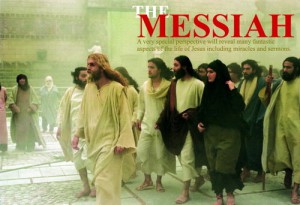
The story of Jesus Christ told from an Islamic perspective.
Read More »
Tag Archives: Iran
Sib / The Apple (1998) Samira Makhmalbaf, Massoumeh Naderi, Zahra Naderi, Ghorban Ali Naderi, Drama
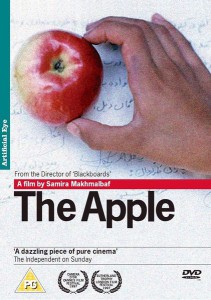
This unusual Iranian documentary/drama is based on the true story of a poor and religious 65-year-old father who kept his two 12-year-old daughters locked in their small house from the day that they were born. Their blind mother agreed with the arrangement since she was unable to supervise them in any other way. Thanks to the concern of neighbors over the plight of Massoumeh and Zahra, a social worker looked into the matter and found the girls unable to talk or walk properly. They were given the first baths in their lives and then returned to their home. The father, believing that he has been publicly shamed by his neighbors, promises not to keep them imprisoned anymore.
Read More »
Ayneh / The Mirror (1997) Jafar Panahi, Mina Mohammad Khani, Aida Mohammadkhani, Kazem Mojdehi, Drama
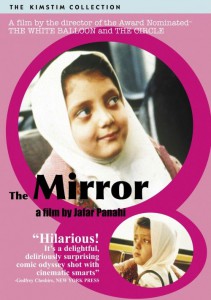
A girl in traditional female clothing, with her arm in plaster, comes out of school one day and doesn’t find her mother meeting her. She decides to travel home herself though she doesn’t know her address and remembers the road only visually.
Read More »
Leila (1997) Dariush Mehrjui, Leila Hatami, Ali Mosaffa, Jamileh Sheikhi, Drama, Romance
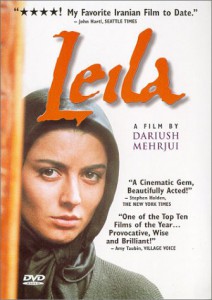
Leila and Reza meet in a kind of celebration and fall for each other. Having discovered their love, they get married soon only to find out the infertility of Leila. That’s when Reza’s authoritative mother starts wheedling Leila to persuade Reza into second marriage for the sake of having a grandchild. Leila accepts at first but is unaware of her own strain threshold.
Read More »
Nahid (2015) Ida Panahandeh, Sareh Bayat, Nasrin Babaei, Pejman Bazeghi, Drama
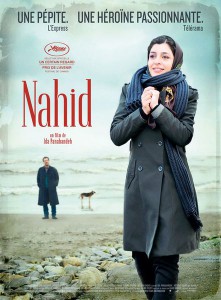
A woman tries to mend the broken pieces of her last life, as she is now involved with a new sexual relationship with a man.
Read More »
Abbas Kiarostami: A Report (2013) Bahman Maghsoudlou, Kurosh Afsharpanah, Shohreh Aghdashloo, Godfrey Cheshire, Documentary, History
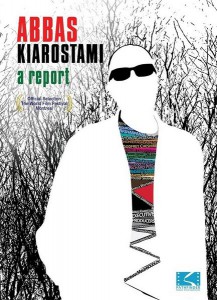
An analysis of the style and vision of Abbas Kiarostami, the world’s most iconic Iranian filmmaker, through the lens of his earliest work, including his first short film (Bread & Alley, 1970) and, particularly, his first feature, The Report. This early example of Kiarostami’s work gives insight into his poetic, humanistic tendencies, combining allegorical storytelling with a documentary, neo-realist sensibility, and often exploring the very nature of film as fiction, that have pervaded his work ever since, including such recent international sensations as A Taste of Cherry and Certified Copy. Exclusive interviews with film critics, historians and scholars (including the late great Andrew Sarris) and those directly involved in the making of The Report provide a look at how the career of this master independent auteur began and was shaped.
Read More »
Be khatere Hanie / For the Sake of Haniyeh (1994) Kiumars Poorahmad, Mahvash Afsharpanah, Rahim Hoodi, Ali Ghorbani, Drama
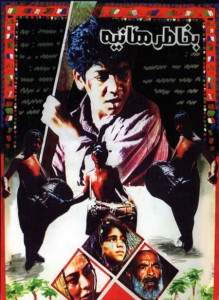
The skipper goes to the sea with 14 other man to catch fish. However, all execept the skipper are drowned and the people blame the skipper for the death of their dear ones. Meanwhile, Haniyeh, the skipper’s little daughter is paralysed and the skipper and his family leave Tangak for Bushehr…
Read More »
Zamani barayé masti asbha / A Time for Drunken Horses (2000) Bahman Ghobadi, Ayoub Ahmadi, Rojin Younessi, Amaneh Ekhtiar-dini, Drama, War
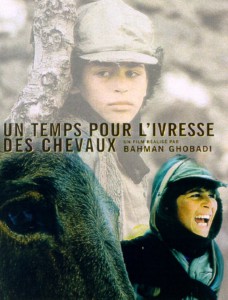
An Iranian Kurdish family is trying to survive after the death of its parents. Ayoub, the eldest boy in the family, becomes the head of the household and must do whatever work available to survive. Madi, Ayoub’s handicapped brother, is in need of a medical operation. Ayoub goes to great lengths to collect money for the operation by smuggling truck tires with a group of Kurdish villagers near the Iran-Iraq border…
Read More »
The Wind Will Carry Us / Bad Ma Ra Khahad Bord (1999) Abbas Kiarostami, Behzad Dorani, Noghre Asadi, Roushan Karam Elmi, Drama
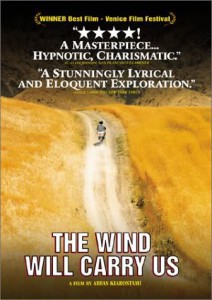
This idiosyncratic drama from Iran begins as a jeep winds through the hills of Kurdistan, containing an engineer (Behzad Dourani) and his two assistants (whom we never see) as they search for a small village in the mountains. When they arrive, they are greeted by a young boy, who shows them a place they can stay and guides the engineer to the home of an old woman (also never seen) who seems to be dying. No one is sure what the engineer and his men are doing there; some locals think he’s keeping watch of the old woman and wants to purchase her land when she dies, while others think he could be an archeologist searching for rare artifacts.
Read More »
Roozi ke zan shodam / The Day I Became a Woman (2000) Marzieh Makhmalbaf, Fatemeh Cherag Akhar, Hassan Nebhan, Shahr Banou Sisizadeh, Comedy, Drama
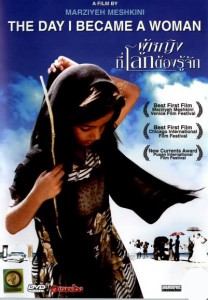
A film comprised of three interconnected vignettes that depict women at three stages of life in Iran. The first part centers on a young girl on her ninth birthday who is told that she can no longer play with the boys she had been playing with only the day before because she is now a woman. Told from the perspective of a 9-year-old girl who does not feel like or know what the word “woman” refers to, we see how devastatingly this affects both the girl and the boy with whom she had been friends. The second part is about a young woman who decides to enter a bicycle race against her husband’s wishes. As first, the husband and then increasing numbers of men from her village ride beside her on horseback to convince her to return home. The race begins to symbolize a freedom that she desperately wants from the limitations that have been placed on her. Finally, the third part shows us an old woman who has come into some money and is now free to do what she wants.
Read More »
Tadjrebeh / The Experience (1973) Abbas Kiarostami, Parviz Naderi, Hossein Yarmohammadi
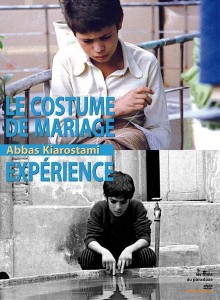
Earning his keep at a photography studio where he also sleeps, an orphan aspires to be closer to the object of his affection, an older girl from a higher social class.
Read More »